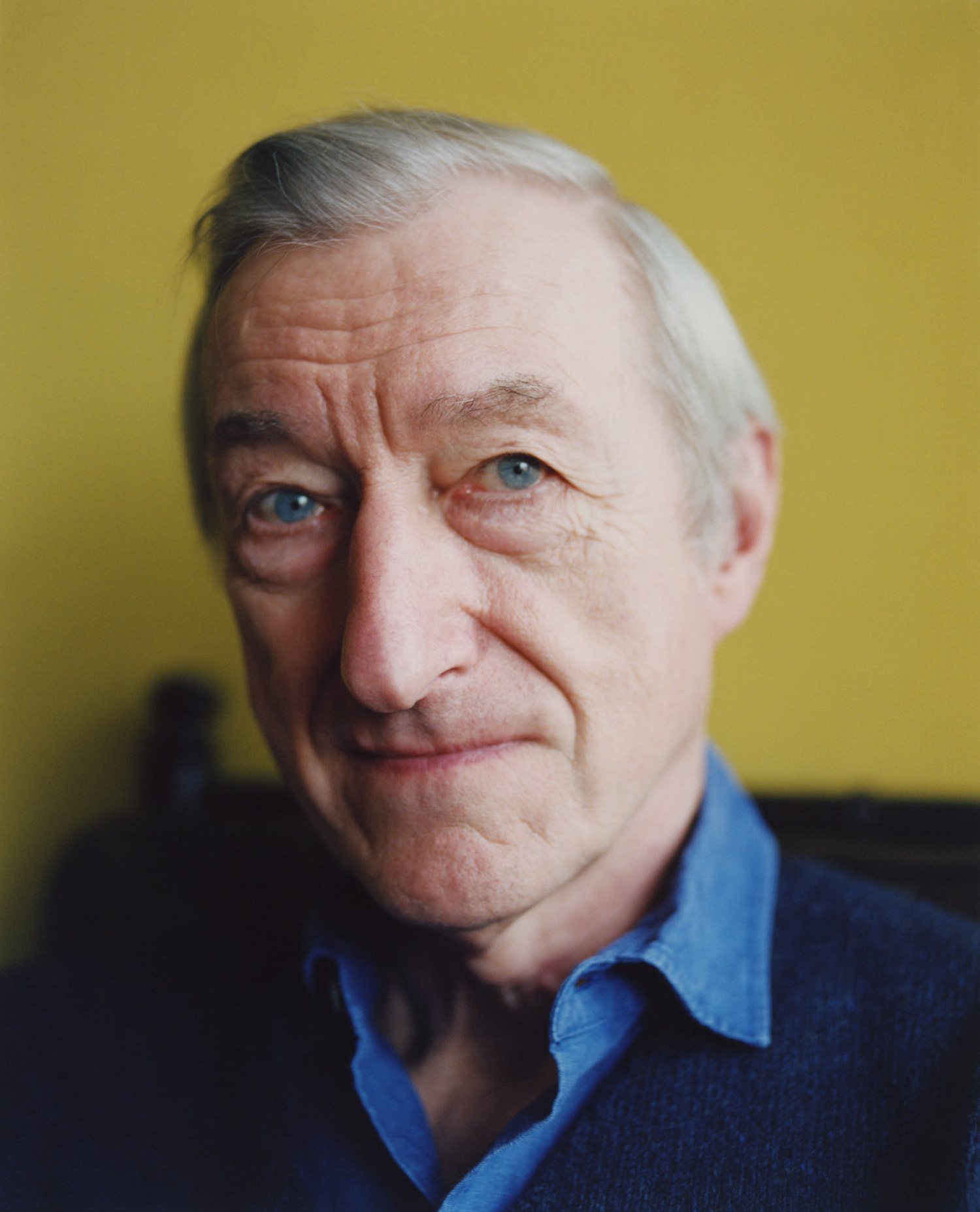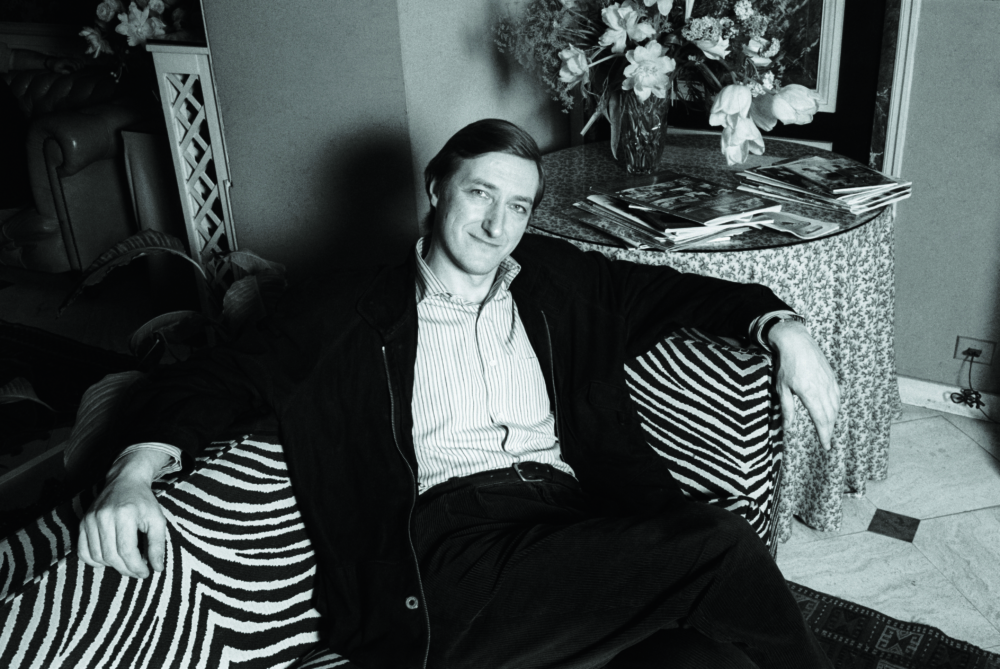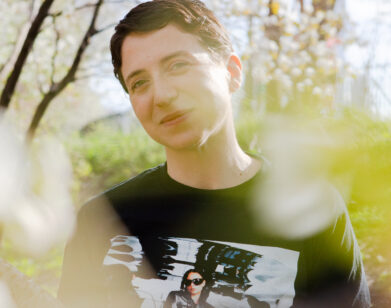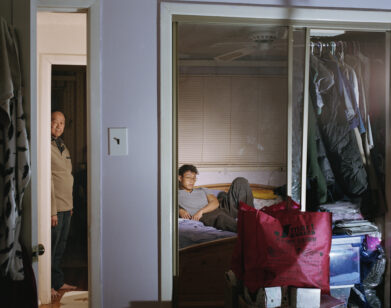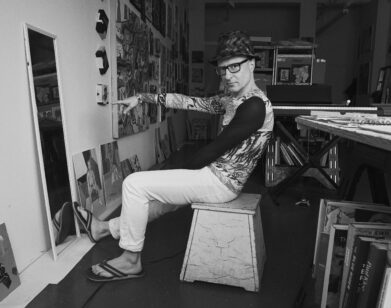Julian Barnes Tells His Neighbor Rachel Whiteread What Pisses Him Off About Grief
In his latest literary work, an intricate, erudite, irreverently contemporary examination of dandyism and the cultural mores of fin-de-siècle Paris and London, Julian Barnes makes a crucial distinction between the handsome male subject of a John Singer Sargent painting and the eye-catching red robe he has on: “The coat is now remembered more than its young inhabitant,” Barnes writes. “Art outlasts individual whim, family pride, society’s orthodoxy; art always has time on its side.” The Sargent painting in question, “Dr. Pozzi at Home,” from 1881, is known for its decadent explosion of reds. Yet, true to Barnes’s thesis, its model, the French gynecologist and boulevardier Samuel-Jean Pozzi, remains an enigma more than a century later. That is, until the writer took it upon himself to explore Pozzi’s marriage, affairs, social ambitions, connections to a diverse array of characters including Oscar Wilde and Sarah Bernhardt, careers in the army and in medicine, and violent end. In The Man in the Red Coat, Barnes creates an immersive biography of an entire epoch using Pozzi as the axle that links all the spinning wheels.
Perhaps no contemporary author has written so prolifically and effectively on the subject of art and mortality as the 74-year-old British journalist, essayist, and novelist. Time and again, in his fiction and nonfiction, Barnes confronts the cultural artifacts that have survived their age and those all-too-mortal creatures who are vulnerable, fraught, desperately unfinished, and do not have time on their side. But Barnes has written so extensively on pretty much every topic under the sun—from crime novels to food reporting—that his fan base could be subdivided into camps: readers who love his essays on France; readers moved to tears by his reflections on love, faith, and loss (particularly his devastating ode to grief, 2013’s Levels of Life, after the loss of his wife, the literary agent Pat Kavanagh, in 2008); readers dazzled by his dark, deft novels about middle-age fallibility and the ever-shattering self (high on that list is The Sense of an Ending, which won the Booker in 2011). Barnes’s audience might be intimidated by his encyclopedic knowledge if his prose weren’t such a joy to read. Earlier this spring, his neighbor, the Turner Prize–winning artist Rachel Whiteread, stopped by the eminent author’s home in North London to talk about his love of France, the unending process of grief, and the loss of his snooker table. —CHRISTOPHER BOLLEN.
———
RACHEL WHITEREAD: This is the first time I’ve really interviewed someone, and my first thought was that interviewing you in your house would be the thing to do. Sitting here now, there are so many rooms absolutely full of books, top to tail. And you seem to have a number of studies.
JULIAN BARNES: I’ve just got one study. This room used to be the snooker room until I sustained a career-threatening injury in my right shoulder. So now the snooker table is piled up with books and pictures and I’ll probably never play again in the home venue. I suppose an estate agent would call this room the library. I have a study next door. It’s a large house, but it actually doesn’t have many rooms. The ones it does have are quite big.
WHITEREAD: What’s your daily routine here?
BARNES: I get up fairly late. It depends whether I’m writing or not—and what I’m writing. If I’m writing, I’m fairly disciplined over the long run. And if I have an idea for a book, I know roughly how long it’s going to take me to write it in terms of one year or two or possibly more. If it’s a piece of journalism, I’m sort of obsessed about getting it in on time, partly because I worked as a journalist back in the day.
WHITEREAD: I always liked your pieces for “The Pedant in the Kitchen” [Barnes’s weekly home-cooking column that ran in The Guardian from 2003 to 2004]. I think that must have been hard to write week after week.
BARNES: Well, being a male cook, who was never taught to cook as a child, it was a matter of knowing you had to do it once a week. So you think ahead: “What about beetroot? Is there a column on that?” I used to have a weekly column as a television critic as well. The actual process doesn’t get any easier. You’re trying to do something different each time. Knowing you’ve done something like it before in a parallel area helps. It must be the same for you, perhaps with a color or material that you feel you know well.
WHITEREAD: It’s very similar to the creative process I have. For you it’s language. But in both cases we’re having to pull from all these different places and resources every time and hone it all down to that one thing, that one way of looking, in order to produce a piece of art.
BARNES: Yes, and I still find it as thrilling as I did when I started. Actually, it’s more thrilling because I’m less anxious. I was tremendously anxious writing my first novel, which is about 170 pages and took seven years.
WHITEREAD: But you were also doing journalism at the time.
BARNES: But that wasn’t slowing me up. What was slowing me up was not knowing what I was doing and not thinking I had any authority to be a novelist. Other people were novelists. You know, there really aren’t that many artists or writers who are the children of artists or writers.
WHITEREAD: Actually, I’m the child of an artist. My mother was an artist, although she never made any money doing it. But I grew up in a bohemian, North London artistic family.
BARNES: Well, that’s lucky. Or interesting, at least.
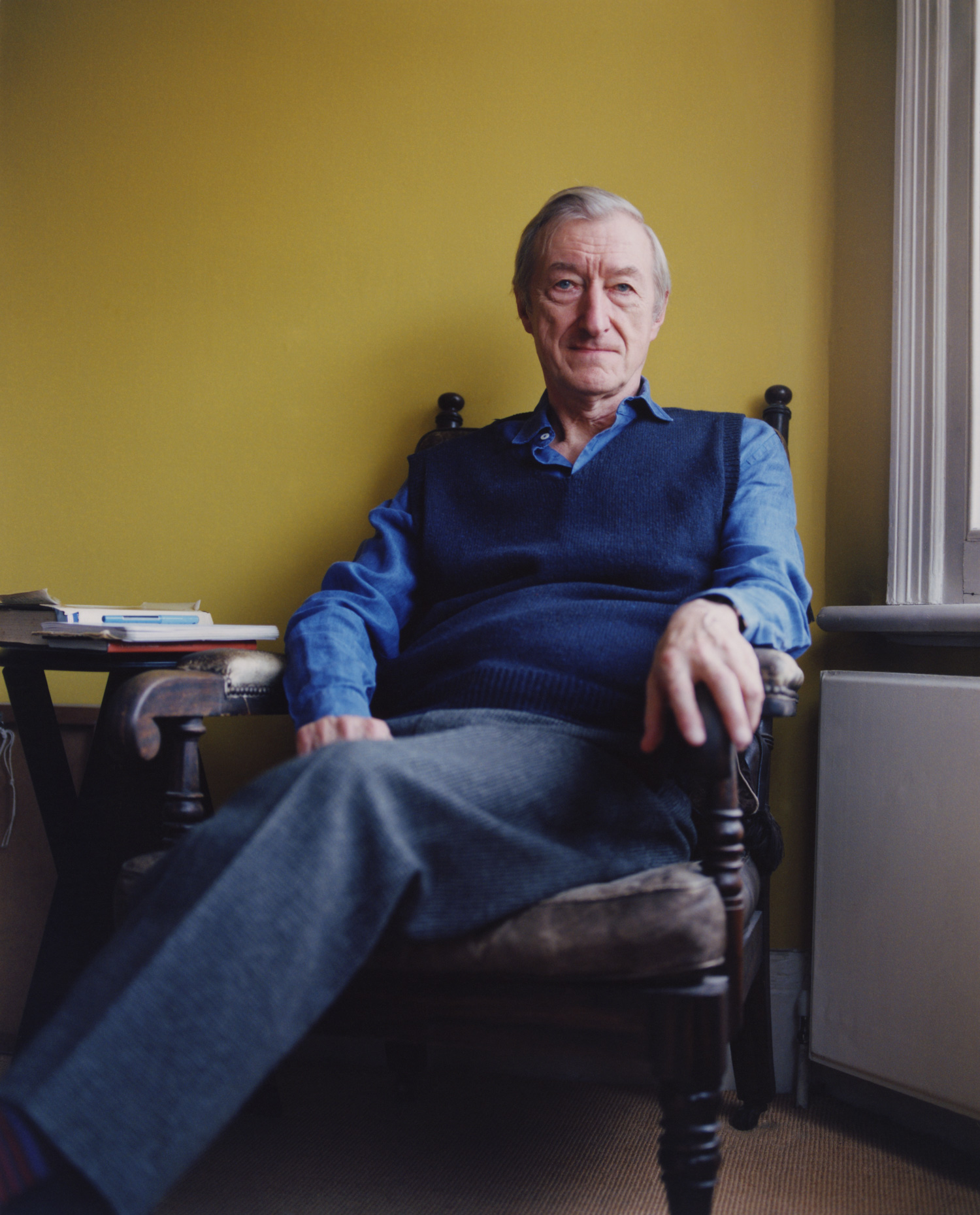
WHITEREAD: A bit of both. I want to ask you about an essay of yours I read recently on the [Théodore] Géricault painting “The Raft of the Medusa.” I’ve been thinking a lot about catastrophe lately—
BARNES: Haven’t we all.
WHITEREAD: Well, what you wrote about that catastrophe was fascinating in terms of how to look at that painting. You can look at it in a very sculptural way. It’s completely three-dimensional. But you can also see it in terms of the great catastrophe of its time. I remember studying that painting in school. It’s one of those works that comes to life in the description of it.
BARNES: The cannibalism. The pushing people overboard. The revolution on board. It starts with a very particular event that Géricault meticulously researched. And then as people forget the details, it becomes more of a metaphor. We’re all, at different times in our lives, climbing up a mast and fielding a distress signal and hoping it will be noticed.
WHITEREAD: What did you do on Brexit night?
BARNES: Which one? There have been a lot of Brexit nights. The most recent one, I decided to ignore it.
WHITEREAD: That’s exactly what I did. I went to bed at half-past eight and braced.
BARNES: I had a nice, quiet supper with my partner, and then we went to bed. I think the most worrying aspect was whether or not there were going to be lots of fireworks, which would terrify my partner’s Jack Russell. He hates fireworks. But I didn’t do anything because I didn’t want to celebrate and I didn’t want to drown my sorrows.
WHITEREAD: What are you working on at the moment?
BARNES: I’m a bit fallow at the moment, writing an occasional angry piece for a European newspaper about Brexit. I’ve decided this year I shall go to Europe as much as possible, in a sort of public way.
WHITEREAD: I remember so clearly as a child the excitement of joining the E.U. My father was very involved with the Labour Party. It just seems so backwards, to go back on it.
BARNES: We don’t know if it’s going to be an economic disaster. We don’t even know if it’s going to be a political disaster. But I think it’s a moral disaster. It’s as if the bad guys have decided to tear up everything that’s worked. They’ve been attacking the National Health Service for 20 years. They’re going for the BBC now. And of course the right-wing press has always been against Europe. When I become ruler, there will be a 25-year ban on any old Etonian being prime minister of this country.
WHITEREAD: Were you an Etonian?
BARNES: Good lord, no. I went to City of London. I’m a middle-class scholarship boy. There are, however, a lot of Etonians who have very, very good manner.
WHITEREAD: You have good manners.
BARNES: They’re getting worse now. When I was growing up in Acton, and later in Northwood, Middlesex, so much of the world was run by posh boys and city men who still go into their offices on Saturday mornings, working five-and-a-half days a week. That just seemed how it was and how it inevitably would be. Then the ’60s happened and you thought, “This country’s changing.” You should never underestimate what power and money, or the expectation of both, do to people and their sense of entitlement.
WHITEREAD: I hope my children are sensible enough to understand that.
BARNES: I’d never gone abroad until I was 13. Then I went with my parents on a motoring holiday in France for two or three weeks every summer. Children today are fantastically well traveled. Europe isn’t the slightly scary place that it was for me. Children know their way around now; they know the advantages. Now we just have to wait for them to become the leaders in power, and to hate what these fools have done.
WHITEREAD: There’s this whole idea that we’re not going to save the world until two-thirds of the world’s population has died off. That’s quite depressing.
BARNES: It might be true that the young give climate change a higher priority than political union with Europe. And I wouldn’t blame them! I was just reading an article about the fact that a lot of birds that used to fly south over the Horn of Africa don’t anymore because it’s so warm up here. That means they don’t feed on the locusts. Now the locusts don’t have any predators so the crops are being destroyed.
WHITEREAD: The butterfly effect. One thing changes and the knock-on effect is extraordinary.
BARNES: But the knock-on effect is never in Manhattan or the City of London. Almost always, it’s the poorest who suffer the most.
- Julian Barnes, Paris, 1987.
WHITEREAD: Do you spend a lot of time in France?
BARNES: No. I think I’m the one British Francophile who could afford a house in France who hasn’t got one.
WHITEREAD: I just assumed from all the things I’ve read about you that you had a place there.
BARNES: I haven’t got a second home of any kind. Never have. You have to go there all the time. And then it has to be kept up or you have to find someone to look after it. Temperamentally, I’m just not good at any of that stuff. I also really like going to different parts of France, parts I haven’t been to before. Ages ago I asked [the writer] William Boyd, who had a house in France, “What’s the tipping point that makes it worth owning a place?” He said it was staying there about three or four months. At that time, my wife was alive and she had six weeks off out of a year. And she rarely took all six weeks. The idea of using them all on a house in France and then worrying about maintenance while we weren’t there….I much, much prefer to rent places here and there.
WHITEREAD: I want us to talk about something more cheerful, but you essay on Pat dying [Levels of Life, 2013] is one of the most touching things I’ve ever read on the subject of grief. It’s really an extraordinary piece of writing.
BARNES: Thank you. I still get a lot of post about it, unsurprisingly, because people continue to die, despite us not wanting them to. I thought that grief had been under-described or described badly. Or described with the backstop of religion.
WHITEREAD: I think, with grief, it changes, doesn’t it? The way you think about someone dying changes. I’ve never had a partner die so I don’t know how that feels. My parents died when I was quite young. I made a piece of work about my father dying—it wasn’t directly about his death but it came into it and it was an incredibly powerful piece of work [“Shallow Breath,” 1988]. Then I made another piece later on, with a box I found in my childhood home. It ended up being 14,000 boxes in the Tate [“Embankment,” 2005]. It was a different way of using the germ of that awful experience.
BARNES: The one thing that’s really pissing me off about grief is that you inevitably remember the beloved in the same way. At first, I really loved when someone had a memory of her that I didn’t know, one she’d never told me about. For that moment, when I got a new story, she was alive, because something new had been added.
WHITEREAD: That’s beautiful.
BARNES: But increasingly that doesn’t happen. After about four or five years, I’ve only very occasionally heard something new. So the nature of grief does change, not just because of time, but because of the repetitiveness of the memories. She becomes somehow more generalized in my memory. And in life she was a very particularized person, and so I resent that. But it doesn’t do any good.
WHITEREAD: Memories do change like that. They become more generalized. What I do in my work, I call it rummaging through my own rubbish bin. I am continually doing that with memory, going forward and backward, in and out.
BARNES: I think of it as a kind of compost heap. Everything that happens, everything you see, it just inevitably gets thrown on the compost heap. And then, three years later, all of a sudden a potato starts sprouting. It works as a metaphor for writing, too. Things have to mulch down. Often I don’t quite know where an idea comes from. The latest book, The Man in the Red Coat, is a very rare example where, in 2015, I went to the National Portrait Gallery show of John Singer Sargent portraits and saw that painting.
WHITEREAD: Seeing that figure in red made you want to immediately research this man’s life?
BARNES: I’d never seen it before because it was hidden until 1990 when it came out and it hadn’t traveled much. I read the wall label and it said, “A famous gynecologist, also a famous Don Juan,” and I thought, “Oh, that’s interesting.” But it was also odd because I know late 19th-century France quite well. And here was a guy with a strange name I would have clocked. That’s all I thought at the time. Two-and-a-half years later, when I was thinking of doing a trilogy on doctors who died in spectacular and unexpected ways, I came across his name in one of my notebooks. He was the first one I started investigating. He had political and literary and artistic connections, and yet you look through all the diaries of the period and he’s barely there. So that intrigued me because he was obviously a very powerful person.
WHITEREAD: Did you want to give him a voice in a way?
BARNES: That sounds a bit too high-minded. I don’t think I thought, “I must give Dr. Pozzi a voice, he’s been silent too long!” It was more that he was someone who I might make vivid through the particular knowledge and talent that I have. But telling his life story was fascinating, set against what France was like at the time, which was violent and hysterical and irrational and Catholic and monarchist and Dreyfusard and so on. He was the voice of rationality and sanity. This is the time when England and France nearly came to war. I suppose that’s why I don’t feel unbearably pessimistic about where Britain’s relation with Europe is going, because there will always be people on both sides of the Channel who will want to come here or go there and who will operate on a level beyond politics. And some of them will be artists like yourself or writers like myself. Others still will be famous gynecologists.
———

